Write Us
We are just a call away
[ LET’S TALK AI ]
X
Discover AI-
Powered Solutions
Get ready to explore cutting-edge AI technologies that can transform your workflow!

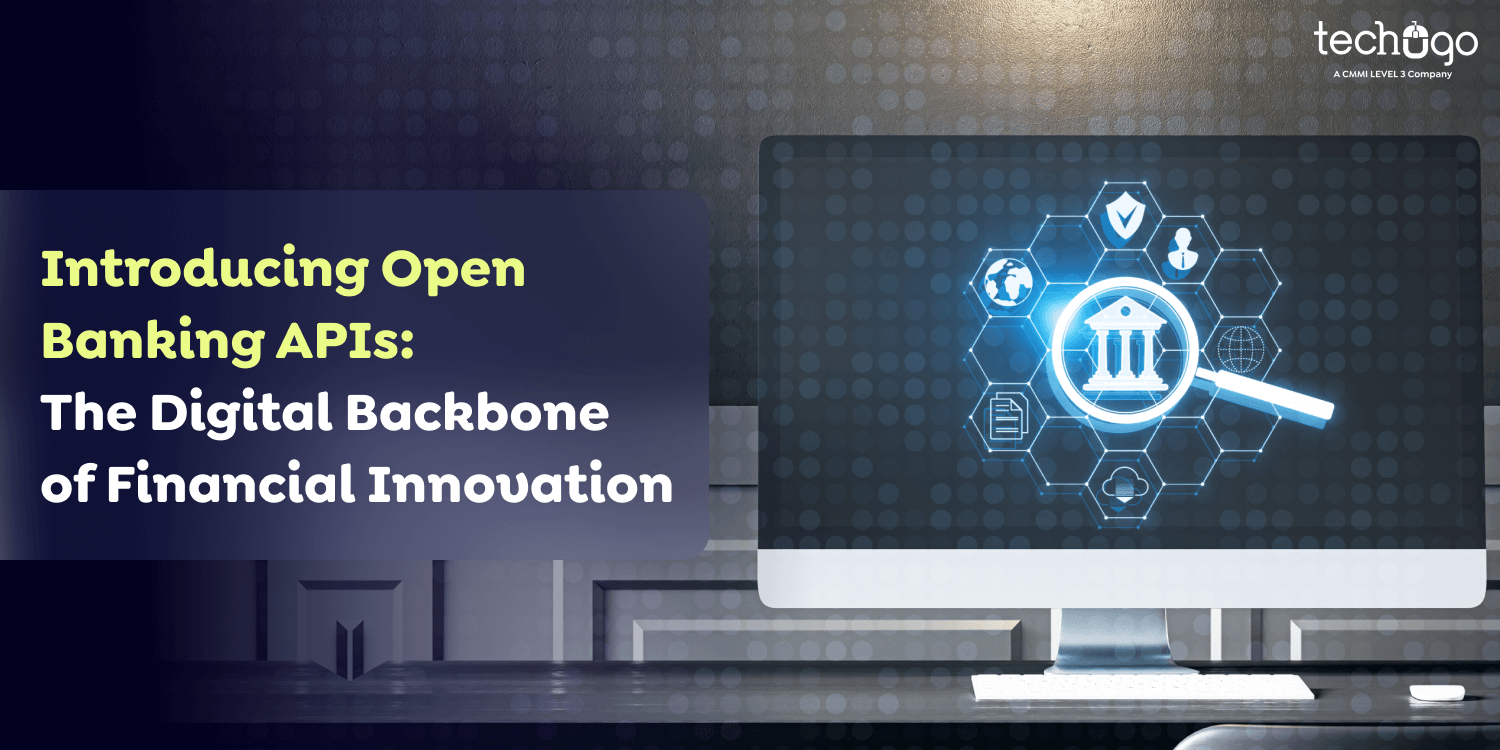
The rapid growth of FinTech has shown significant changes in the world of finance. This shift may result from various aspects, such as developing innovative services, creating strategies to build markets, or the effect of social isolation resulting from illnesses. In these changing times, connectivity is the primary aspect of the evolution of finance.
In today’s financial climate, all entities, including banks, credit card companies, and payment processors, work together to provide better customer service. These include traditional banks and mobile apps. An efficient Application Programming Interface API, commonly referred to as an API, powers these exchanges. The rapid expansion of fintech has led investors and entrepreneurs to create apps specifically designed for consumers to make money and offer frequent usage.
It is evident that the FinTech business has increased its utilization of APIs, and this trend is expected to continue. Financial executives are now more aware of APIs’ advantages, which include improved efficiency, speed, and automation. However, they were initially cautious because of their ignorance of these advantages and risks. API integration has become an essential component of FinTech firm’s strategy as they devise innovative ways to improve efficiency and customer satisfaction, thus allowing growth over the long run within the digital ecosystem. This blog aims to help readers understand APIs in FinTech by providing a comprehensive analysis of their purpose and multiple advantages to the field. Let’s look at the details below.
In finance, “open banking” permits unaffiliated third parties to share financial information, such as a bank account. Open banking allows the bank to securely exchange financial information with non-traditional financial institutions. Banks exchange data using APIs, also known as application programming interfaces.
Financial institutions that are not banks use open banking. This includes lending, expense tracking, and financial planning companies. Firms in financial technology can offer customized, customer-centric financial services thanks to safe data transmission. The fintech industry collaborates with banks and other service companies to offer affordable, user-friendly solutions. The primary goal is to fulfill consumers’ needs to speed up payments and banking. Open banking APIs have become more widespread since their growth. APIs for banking open to the public allow banks to connect with more customers. Yet, APIs also allow third-party financial institutions to offer personalized services.
Also Read : Reinventing the Financial Landscape Via AI in Banking
Three kinds of APIs are used within banking: private APIs, Partner APIs, and Open APIs. Each has its function and distinct advantages.
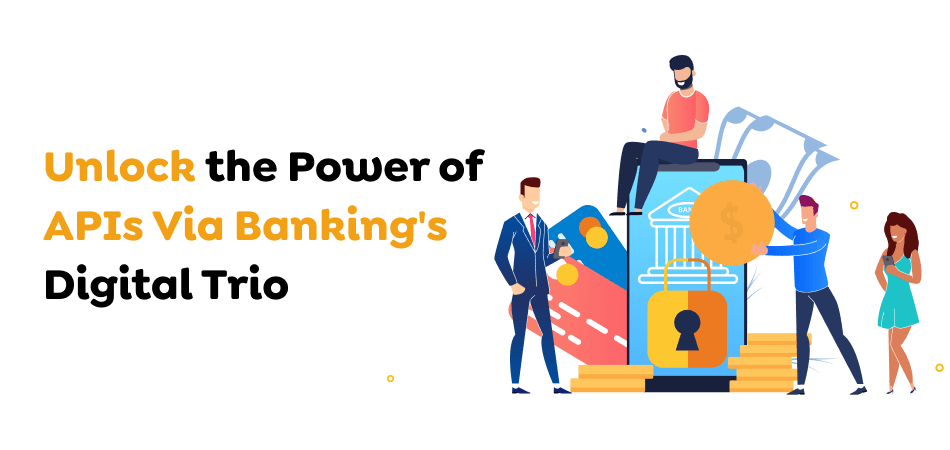
Private APIs are employed in banks’ internal systems and aren’t accessible to third parties. This type of API can help banks improve their internal processes, permitting different departments to share information efficiently. For example, the private API could connect the bank’s client service platform to its transaction process management system, making it easier for agents to assist customers.
The APIs will be made available to a select group of business partners. They are not accessible to the general public, but they are accessible to selected outside parties that have a contractual connection with a bank. For example, a financial institution may offer partner APIs with mortgage companies. This permits the mortgage company to gain access to information about customers, subject to the client’s consent, to accelerate the process of approving loans. APIs for partners aid banks and their partner companies to deliver better, more integrated services to mutual customers.
Open APIs, called public APIs, are accessible to external developers and other third-party vendors. They are intended to foster development by allowing developers to develop new services and apps to communicate with banks’ systems and data. For instance, an open API could let a fintech startup create a new tool for budgeting that integrates with different banks’ accounts. TAB Bank, for example, utilizes open APIs that allow third-party fintech app development company to design unique financial solutions that improve customer experiences. Open APIs are vital to developing a dynamic and competitive banking system.
Also Read : Online Banking Management System – Its Scope and the Technology Used
Open banking APIs could provide an immense benefit to customers and bankers.
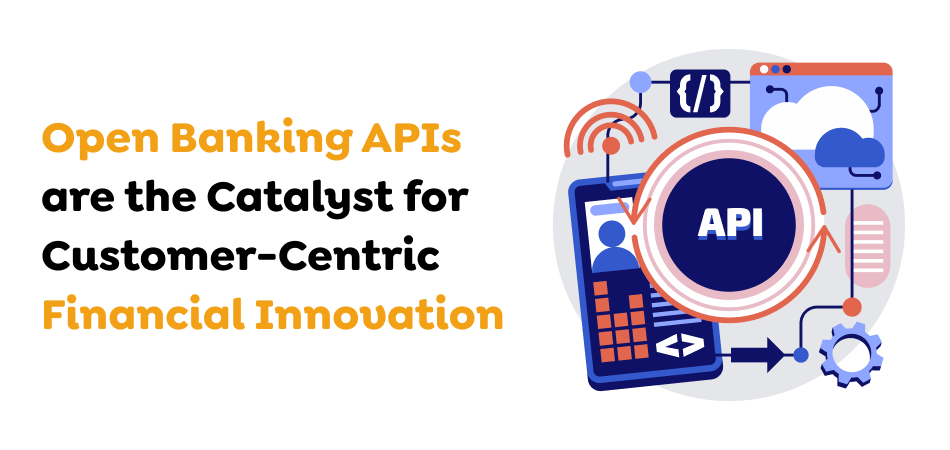
Banks can gain crucial customer data, including purchasing history, financial records, investment records, and other critical financial data. They can utilize this information to refine their financial services or products and provide highly personalized products and services to their customers.
APIs for open banking also assist financial institutions and banks improve their service by analyzing customer feedback and reviews.
Bank APIs for open banking can be important to banks and other institutions because they allow them to quickly create valuable, customer-centric offerings. Some services include risk management, loan processing, chat or voice banking, and more.
The millennial generation is technologically adept and mainly uses non-traditional banking services provided by banks. You can reach them by providing them with highly beneficial financial aid and also earning their loyalty.
FinTech companies use an API for banking to access financial data from banks. With this information, they can enhance their offerings and speed up the development of products and services that cater to customers’ needs. Additionally, they can improve and streamline their financial procedures by utilizing technology.
Another advantage of open banking APIs is that they create a new revenue stream for banks. Banks can easily earn revenue from APIs for open banking. Banks have a substantial client base, and financial players are equipped with technological innovation, technology, and speed.
Also Read : Mobile Banking Trends in the UK : The Rise of Fintech
While the open API banking concept has many advantages, banks must face some issues. We’ll discuss these issues in detail here.
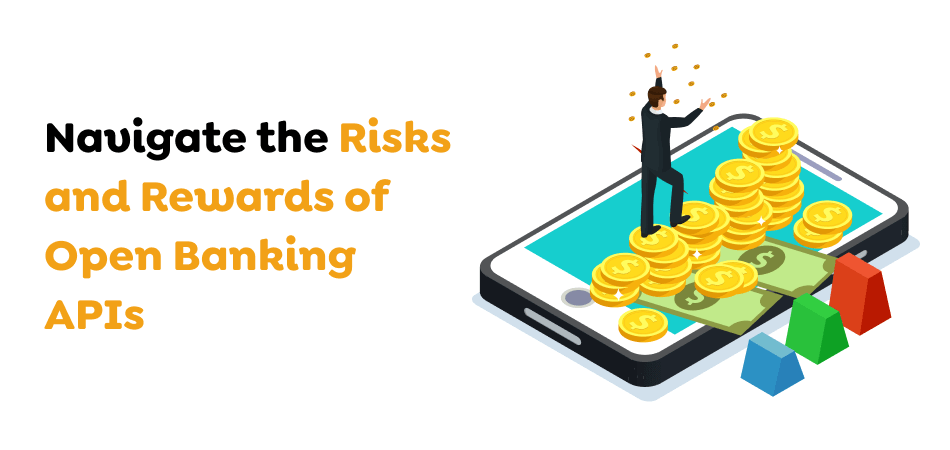
If you are fully committed to this API for banking, that is an open idea. Be sure to consider the security of your data and the financial privacy risk it poses. You’ll need strong data privacy and security regulations to reduce security and privacy threats. Although various data privacy and security laws exist, strong data security measures are essential for FinTech application development. Open banking APIs could lead to data breaches, terrorist financing, and security concerns related to data theft. Solid regulatory strategies are required to manage these risks.
Also Read : DLT Applications: Change Way with Decentralization, Security, and Transparency
You must also ensure that implementing an open bank API does not compromise customer rights. To safeguard customers’ rights, you’ll require a robust grievance redressal mechanism. Additionally, you require a consent-based system to exchange data. This system allows users to accept or decline data exchange requests from banks or FinTech firms. Protecting customers’ rights is the primary duty of your business. You must take the appropriate steps to protect it.
Banks can implement open API banking concepts while ensuring compliance with local and international legislation on privacy. Risks to compliance could arise for various reasons, including penalties for making poor decisions. Sometimes, they result from actions or inactions by third-party FinTech firms and financial institutions. You must consider this issue when you embrace an Open Banking API idea.
Also Read : Franchise Compliance Software Tools: How to Choose the Right Solution?
Every day, we learn about various breaches of our cyber security. Cybercriminals have become more sophisticated in their methods. Sharing data between two parties can increase the likelihood of cybersecurity hacks and data theft. Banks and financial institutions must compensate customers in the event of data theft during exchange. Additionally, we should be aware of other risks, like data misuse, forgery, and malware. The mobile app development company should take care to ensure the privacy of data.
The major industries in which Fintech API is used are Asset and Wealth Management, Consumer Lending, Retirement Services, Investment and Banking, Risk management, and many more. Fintech’s applications can further aid in the industry’s development. The procedure for utilizing an API is described in this article:

Let’s discuss some examples of how to use Fintech API within the company:
The first instance we would like to discuss here is the usage of smart contracts. These decentralized applications deal with layout changes, which are implemented via a P2P network via smart contracts. For example, a Hotel room reader can connect to an API to determine and verify the client’s credentials and grant effective access to the room. The data will then execute the API call to complete the authentically agreed-upon payment.
API API allows Fintech businesses to respond quickly to market trends and connect to the diverse functions their customers need. This process takes much less time than traditional tools since API connects to different systems and can access data that is not within the company. New services are rapidly tested and then released into production, and as the number of applications grows, the system can be scaled easily.
Once FinTech software is created by a professional, it can benefit from more security and safety features built into it. This allows you to function as a FinTech firm and quickly handle people’s finances. This means that you will not have to worry about handling any situation that could occur, which will be a positive for your business. Therefore, it is recommended that you choose to go with customized FinTech software development through outsourcing your needs.
We agree that the initial investment in creating FinTech applications or software from scratch can be costly, but it will pay off. It is most likely to reap the maximum benefits over the long run. It provides the smoothest and most efficient process for your company and will ensure that you do not encounter any issues in executing procedures in a timely manner.
It is an overwhelming and time-consuming task when you are looking to add features or new functions to a financial software or banking application. Because the existing application has been created and distributed in a way you can’t undo, this process is old-fashioned compared to custom-designed FinTech software. When you develop custom software, you can incorporate additional features later when your business requires these features. Since the program can be customized to efficiently meet your business needs, you can complete this and add features you require later by contacting the mobile app development company in USA.
API lets you automate processes for both perpetual and regular tasks, saving you time and effort. A real-time application converts data so companies can make better decisions regarding client service.
The most important aspect of creating a successful game (in your Fintech apps) is ensuring winners receive rewards promptly. The dependence on Internet banking or manual methods was not a good choice for progressive gaming businesses. Razorpay has helped gaming companies Mobile Premier League, RummyCulture, Pokersaints, and many others to transfer their rewards swiftly and effortlessly.
Additionally, banks can maintain their competitive edge through:
Challenges in Fintech API:
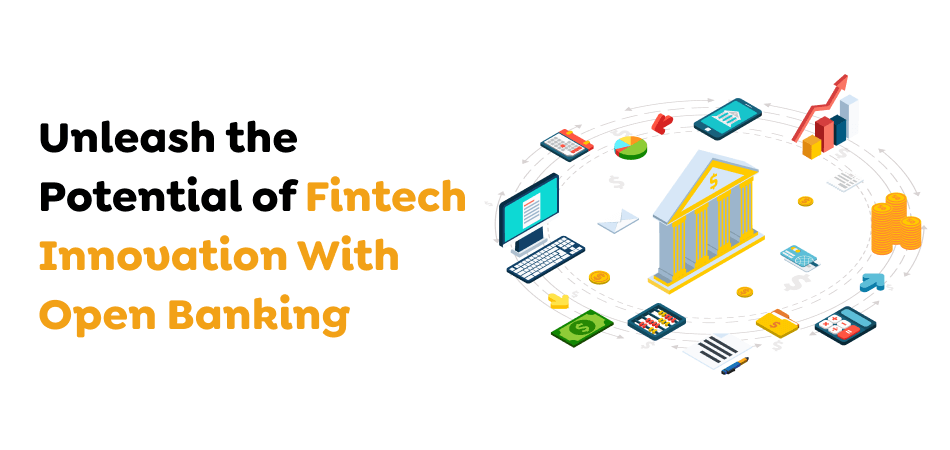
Open banking has helped accelerate Fintech innovation by providing secure access to financial information and banking infrastructure using APIs. Fintechs are using these APIs to create innovative products and enhance the services offered by banks, including loans, insurance, investments, and many other areas. Payment initiation APIs enable immediate bank transfers via eCommerce platforms. Account aggregation APIs allow fintechs to give a complete overview of the customer’s finances from various accounts and banks.
Open banking has created new business models, such as embedded finance, which allows fintechs to incorporate financial service providers with non-financial brands. Direct access to bank systems has allowed fintechs to expand their client base quickly. Fintechs have joined forces with banks to enhance their offerings and expand into new markets. The collaboration community and the vibrant developer community, fueled by open banking, have helped accelerate the pace of digital innovations in financial services. While still evolving, open banking has accelerated the development of Fintech companies across the globe by facilitating accessibility and innovation as well as healthy competition.
Also Read : FinTech in Investment Banking: How It Can Help the Unbanked Population?
Implementing an API for Open Banking requires various important processes and parts that provide an uninterrupted and secure data exchange between banks and third-party lenders. Understanding the technical aspects is essential for fintech companies that want to integrate open banking APIs into their platforms.
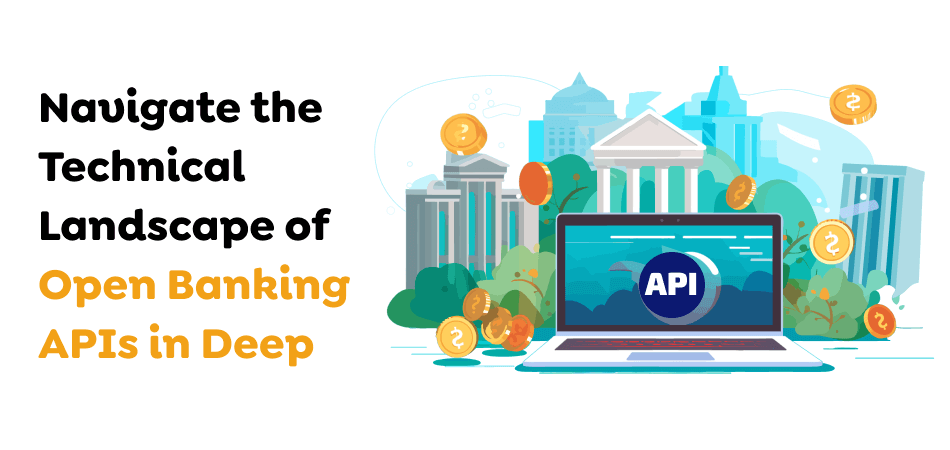
One of the primary aspects essential for open banking is using standard APIs APIs. These standards guarantee that the APIs of different banks and financial institutions are compatible, making it simpler for fintech companies to integrate with banks of various sizes. In Europe, for example, there’s an organization called the Berlin Group. Berlin Group and the UK Open Banking Implementation Entity (OBIE) have created API standards explicitly designed for Open Banking.
The most frequently used protocols utilized by open banking APIs comprise:
Given the delicate nature of financial information, security and privacy are the most important considerations for Open Banking. Open Banking APIs employ different security measures to protect the confidentiality of customers’ information.
Inside the Open Banking system, customers have control over who can access their financial details and what data they can access. The following types of permissions are the most frequently employed:
One of the main issues arising from introducing APIs for Open Banking is the integration with old banking systems. Many banks still use essential banking platforms that are not explicitly designed to integrate with modern API-based systems. To address this problem, banks often use intermediaries and platforms for API management, which serve as intermediaries between the older platforms and open banking APIs. These middleware solutions allow banks to provide their data and services via APIs without revamping their infrastructure. Fintech firms can connect these APIs with their systems to gain access to banking data and services in minutes.
Before deploying Open Banking APIs in a live environment, fintech companies generally use sandbox environments to test APIs. Sandboxes are virtual environments that mimic the actions of a bank’s real-world system. It lets users evaluate their APIs, verify that data flows are being processed, and confirm that security standards have been adhered to without putting the information of actual customers in danger.
Sandboxes offer a secure environment to play around with and test Fintech businesses that can enhance the performance of their Open Banking integrations before going live. Numerous API providers, as well as banks, have sandboxes available within their Open Banking API offerings.
Also Read : Why Fintech Payment Apps are the Future of Secure Transactions
Explore fintech’s constantly evolving technological world by studying the most innovative APIs that have revolutionized the financial sector.

The financial industry is witnessing an increase in the need for quick transactions. APIs are at the forefront of responding to the need. Real-time Payments APIs play a vital role in facilitating fast, safe transactions. They allow users to perform transactions instantly, ensuring an efficient and smooth transfer of funds. Peer-to-peer transfers, retail or business transactions The Real-time Payments APIs are essential in speeding up and effectiveness of financial transactions. The demand for fast and effortless transactions rises, increasing the significance of APIs for real-time payments, which is becoming more crucial in determining the direction of fintech technology.
Also Read : Mobile Payment Solutions: Driving Cashless Transactions in Saudi Arabia
Embedded Finance is transforming the ways that financial applications are integrated into other applications, and APIs are an essential component of this change. The Embedded Finance APIs enable an easy integration of finance functions on various platforms. Businesses can utilize these APIs to allow loans, in-app payments, personal financial data, and more. This integration doesn’t just enhance the user experience; it opens up possibilities for new revenue streams for companies that incorporate the financial sector into their systems. With Embedded Finance APIs, the distinctions between traditional banks and other industries blur, creating a unified and more user-friendly financial system.
Open banking is an exciting new technology in the fintech sector that is changing how financial data is accessible and exchanged. Through APIs, financial institutions and third-party service companies cooperate to allow customers to exchange financial information safely. This enables the development of new financial applications and services, such as budgeting tools and investment management systems. Open banking doesn’t just give customers more choices and convenience; it also helps build an integrated and efficient financial system.
Integrating blockchain technology into Fintech APIs marks an essential advancement in the level of security, transparency, and safety for financial transactions. Blockchain-based APIs use uncentralized, tamperproof ledgers. They are a perfect solution to applications like secure payment, including remittances and remittances, in addition to decentralized lending and tokenization for assets. The stability and security that blockchain provides help improve financial transactions’ efficiency and confidence. The financial sector continues researching the potential of blockchain technologies; APIs play a crucial role in determining the future of secure and decentralized monetary transactions.
Incorporating AI and machine learning into fintech APIs is an essential development in providing financial services customized for the individual. These advanced APIs analyze huge datasets of financial information to provide individualized advice and help to clients. These include credit scoring, fraud detection, and advanced investment management. AI-powered APIs not only simplify the process of making decisions but also assist in gaining a comprehension of consumer behavior. They also help financial institutions to provide customized and flexible financial services. As these technologies advance, AI and machine learning APIs are expected to play the primary factor in how fintech develops over the next few years.
Also Read : A Guide to Let You Build Your Advanced Mobile AI App
The interaction of the Internet of Things (IoT) and financial services opens the door to new solutions, assisted by APIs connecting IoT devices with fintech apps. These APIs enable sophisticated payment methods, automated expense tracking, and personalized financial advice with data gathered via IoT devices. Integrating APIs powered by IoT enhances the user’s experience by providing new ways to manage their finances and make educated choices. This doesn’t just change how people utilize the financial market; it can also be a way for businesses to create custom solutions based on data gathered by IoT.
Also Read : Navigating the Impact of IoT & Cloud Computing on Modern Technology

The open banking API is a fantastic equalizer in a field that has long been in the hands of traditional banks. Open Banking offers much-needed change and a huge opportunity for fintech firms to increase their operational efficiency and standardize their technology, thus increasing their competitiveness in a rapidly expanding industry. Establishing open Banking does require some foundational work, but the benefits are well worth the effort. By implementing Open Banking, your fintech business can lead with new solutions in a world of vibrant and diverse financial systems, which will move the industry forward and help democratize banking completely.
Techugo, as a leading fintech app development company, is the ideal partner to help your fintech business navigate the complexities of open banking implementation. With our deep expertise in open banking APIs, secure data exchange, and regulatory compliance, we can provide tailored solutions that meet your specific needs. Our team of skilled developers and industry experts will work closely with you to design, develop, and integrate open banking APIs into your platform, ensuring a seamless and secure experience for your customers. By partnering with Techugo, you can accelerate your time to market, reduce development costs, and gain a competitive edge in the rapidly evolving fintech landscape. Contact us now!
Write Us
sales@techugo.comOr fill this form